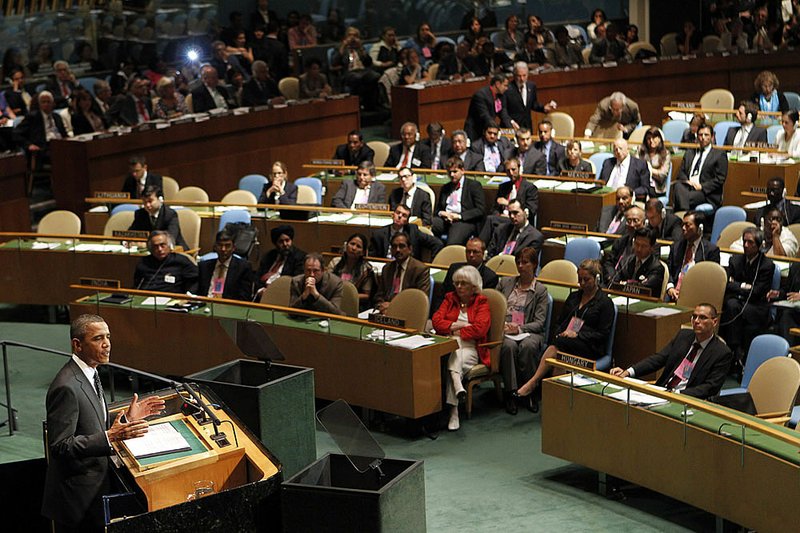LITTLE ROCK — President Barack Obama said Wednesday that assistance to developing countries can spur U.S. economic growth, and he announced an overhaul of U.S. foreign-aid policy that focuses on helping foreign economies develop over the long term.
“In our global economy, progress in even the poorest countries can advance the prosperity and security of people far beyond their borders, including my fellow Americans,” the president said in remarks at the United Nations in New York.
The new policy is “rooted in America’s enduring commitment to the dignity and potential of every human being,” Obama said at a summit on the U.N.’s Millennium Development Goals, a 15-year plan to halve poverty around the world by 2015.
Several development goals have been reached already, Obama said, including advancing education, reducing cases of HIV/AIDS, tuberculosis and malaria, and improved access to drinking water.
Michael Froman, Obama’s deputy national security adviser for international economics, told reporters in a conference call that future U.S. aid will focus on countries that have shown progress in meeting goals. He said encouraging stable markets abroad for U.S. exports is a “core part of our national security.”
“Let’s put to rest the old myth that development is mere charity that does not serve our interests,” the president said. “From Latin America to Africa to Asia, developing nations have transformed into leaders in the global economy.”
Instead of “managing poverty,” Obama said, aid in the future should try to replicate the successes of developing countries being turned into thriving economies.
The U.S. also needs to be “bighearted and hardheaded” while making sure to send aid only to countries where it will be used effectively.
“To meet our goals, we must be more selective and focus our efforts where we have the best partners and where we can have the greatest impact,” he said.
Obama said countries are more likely to succeed economically when they encourage entrepreneurship, invest in their infrastructure, and expand trade and open themselves to new investment.
The president urged the Group of 20 nations to make anti-corruption a part of its agenda and pushed other donor countries to live up to their commitments. “Over the long run, democracy and economic growth go hand in hand,” he said.
Meanwhile, the world’s nations pledged more than $40 billion to battle needless deaths among poor mothers and their children.
“The [economic] crisis is no excuse for letting up our efforts, but underscores the need for actions,” U.N. Secretary-General Ban Ki-moon said as he wrapped up the three-day Millennium Development Goals summit.
With many countries still hurting from the global economic crisis, the secretary general has repeatedly urged governments not to abandon the world’s 1 billion people living on less than $1.25 a day.
Britain’s Deputy Prime Minister Nick Clegg urged other countries to join Britain in meeting aid commitments.
The goals, “are not simply charity, nor are they pure altruism,” Clegg said. “They are also the key to lasting safety and future prosperity.” Information for this article was contributed by Kate Andersen Brower and Nicholas Johnston of Bloomberg News and by Anita Snow of The Associated Press.
Front Section, Pages 3 on 09/23/2010
